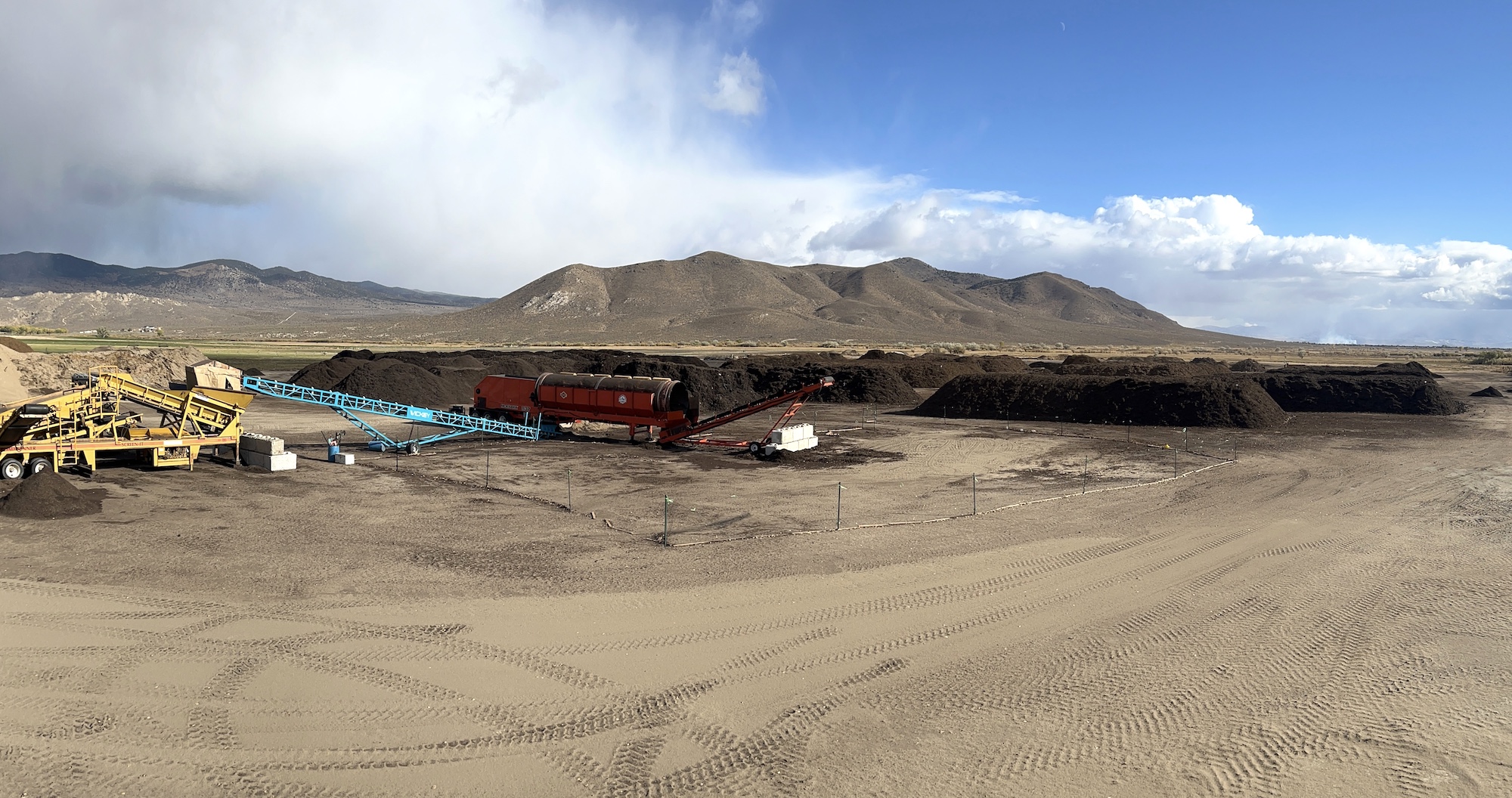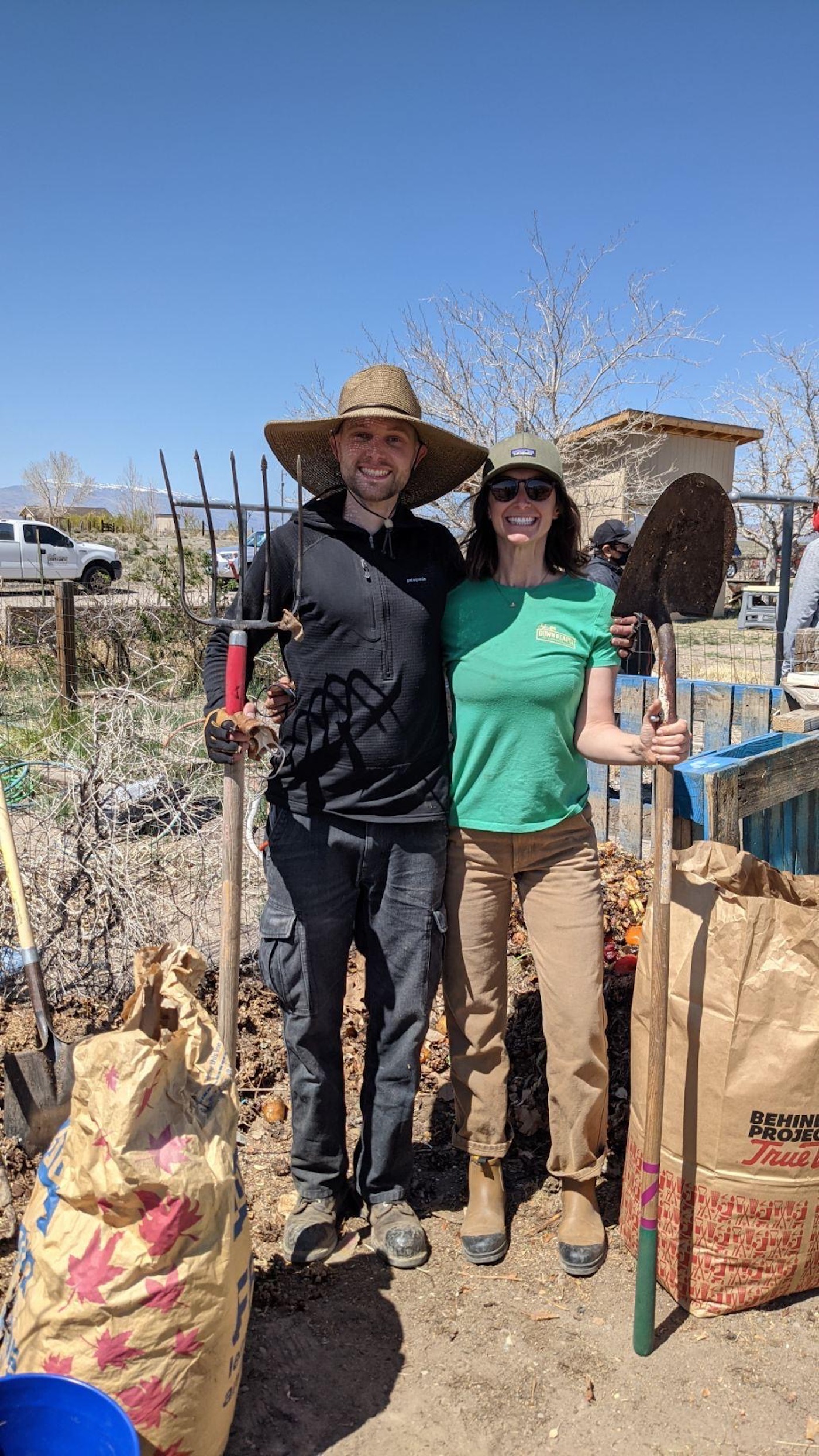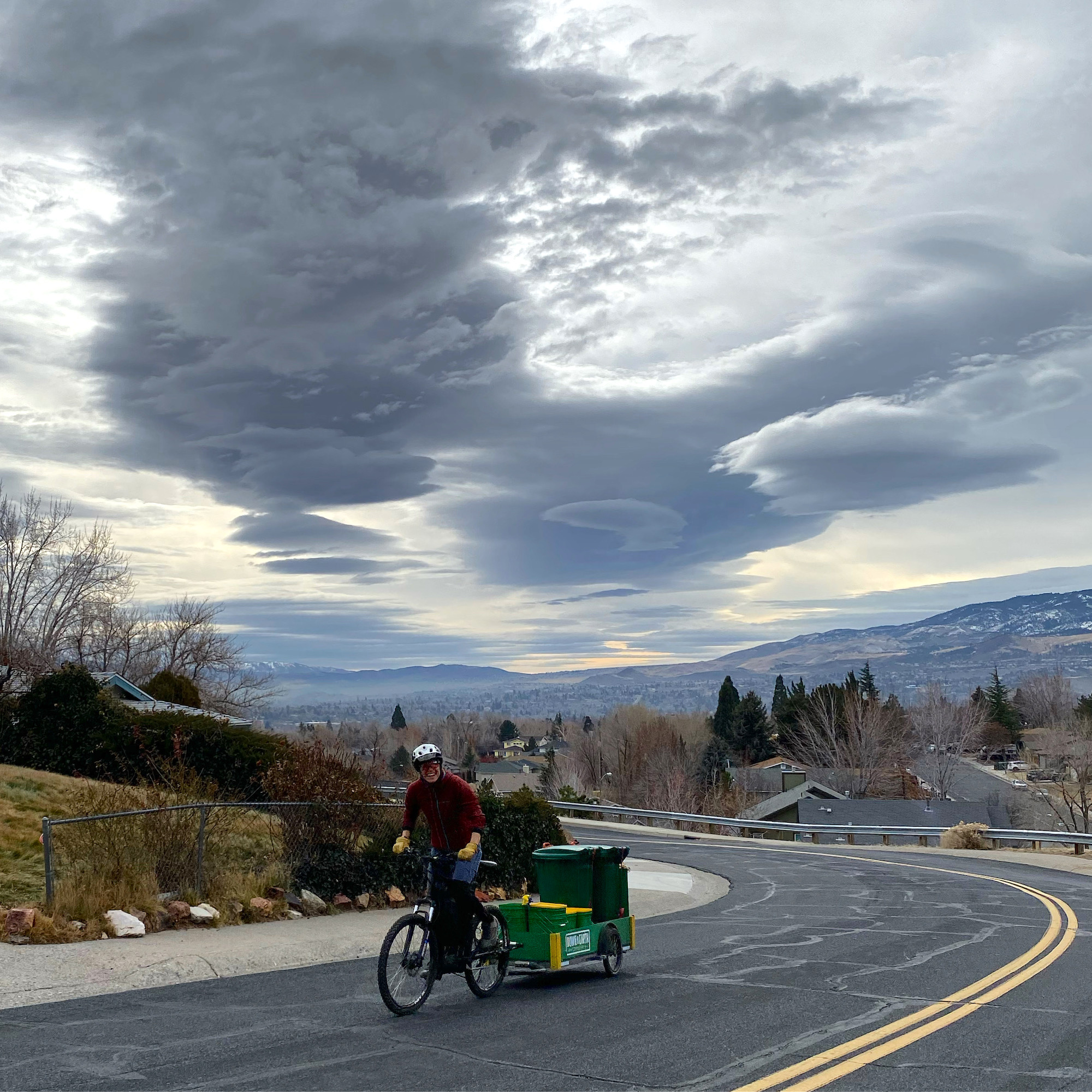Cody Witt, Northern Nevada Manager at Full Circle Soils and Compost, stands in front of a giant pile of compost at the company’s site in Carson City.
Courtesy Photo
 A view of manicured rows of compost at Full Circle Soils and Compost’s 40-acre site at the Northern Nevada Correctional Center dairy and horse farm in Carson City.
A view of manicured rows of compost at Full Circle Soils and Compost’s 40-acre site at the Northern Nevada Correctional Center dairy and horse farm in Carson City.
 Jon Criss, left, and Oz Kupoglu are co-owners of Down to Earth Composting in Reno-Sparks. Courtesy photo
Jon Criss, left, and Oz Kupoglu are co-owners of Down to Earth Composting in Reno-Sparks. Courtesy photo
 Oz Kupoglu, co-owner of Down to Earth Composting, bicycles around a cart filled with food scraps that will be turned into compost. Kupoglu and fellow “rot riders” pick up compost buckets from people around Reno-Sparks subscribed to their service. Courtesy photo
Oz Kupoglu, co-owner of Down to Earth Composting, bicycles around a cart filled with food scraps that will be turned into compost. Kupoglu and fellow “rot riders” pick up compost buckets from people around Reno-Sparks subscribed to their service. Courtesy photo
Comments
Use the comment form below to begin a discussion about this content.
Sign in to comment